Crushed Asphalt Driveway: Pros, Cons, & Costs
Author: Omar Alonso | Editor: Omar Alonso
Review & Research: Jen Worst & Chris Miller
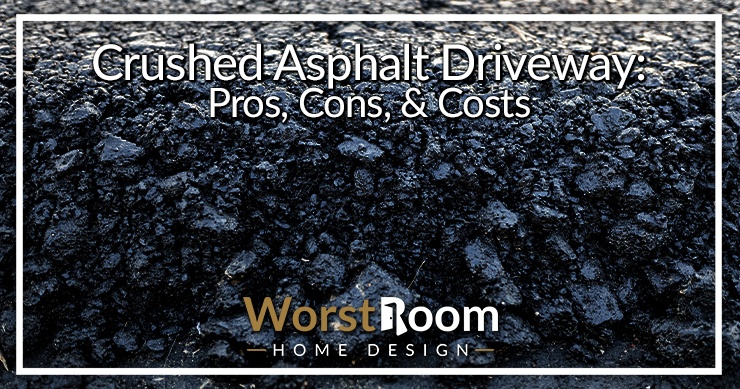
The driveway is arguably the "highest traffic area" of the home. Okay, that was a bad pun, but this surface will endure plenty of abuse over the years. It's constantly exposed to the elements and takes serious abuse from vehicles. And that's our main concern as we consider a crushed asphalt driveway... will it work?
Eventually, a concrete or paved driveway becomes patchy and worn, requiring maintenance. Replacing paving bricks is challenging if you don't have spares stored somewhere on your property, and laying fresh concrete is a hassle.
Consider a crushed asphalt driveway if you're going with a new installation. Crushed asphalt is easy to maintain and budget-friendly, with good curb appeal.
What is Crushed Asphalt?
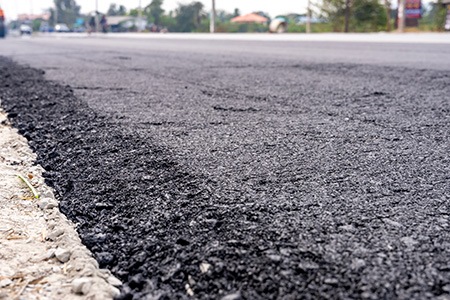
Crushed asphalt and asphalt are two different things. Asphalt is an original material, while crushed asphalt is a secondary product made from original asphalt. Essentially, crushed asphalt is recycled original asphalt, repurposed for applications like driveways.
Across cities, contractors remove old roads and crush the asphalt, recycling it into pavements and driveways. Asphalt milling, pavement milling, and recycled pavements refer to crushed asphalt products. Producing original asphalt is a labor-intensive process requiring more oil to manufacture the product. Crushed asphalt isn't nearly as demanding.
The process starts with manufacturers pulverizing the original asphalt, turning it into gravel. The material then gets turned into driveways and pavements. Some of the more popular applications for crushed asphalt include the following:
- Sidewalks
- Driveways
- Retaining walls in landscaping
- Runways at airports
- Gravel roads
- Playgrounds and basketball courts
- Patio base layers
What Is Recycled Crushed Asphalt?
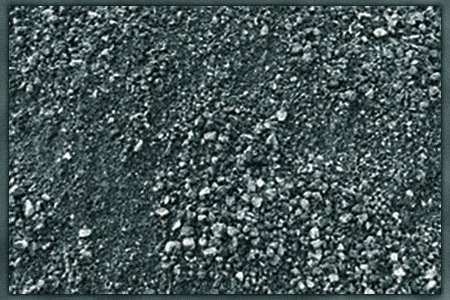
Recycled or crushed asphalt consists of recycled gravel from asphalt roads and projects. Also known as "milled" asphalt, crushed asphalt is an environmentally friendly paving material since it's recycled and repurposed.
The United States produces and repurposes around 100 million tons of the stuff every year, making it one of the most recycled materials in the country. Crushed asphalt can be continually recycled and repurposed.
RAP (recycled asphalt products) offer homeowners an affordable and sustainable material for building a driveway. Producers can also repurpose old driveways into fresh hot-mix asphalt paving materials. The chemical composition of cement changes when mixed with water, but there's no similar chemical change when recycling asphalt.
As a result, manufacturers can repeatedly recycle the material without degrading it. Manufacturers can remove asphalt from an old road, crush it, process it, heat it, and mill it into a new asphalt pavement or driveway.
Crushed asphalt can be a base for hot-mix installations on roads, pavements, and driveways. The milled or recycled asphalt offers a durable surface with similar properties to hot-mix asphalt surfaces.
When manufacturers mill or recycle old asphalt, they crush it into small pieces of gravel using a milling machine. Typically, the contractor does this process at the road removal site. The asphalt milling machine grinds the asphalt into a gravel consistency with pieces measuring approximately 1.5 inches or smaller.
After the manufacturer crushes the asphalt to the right consistency, an industrial vacuum removes the debris from the substrate. The manufacturer then pours the milled asphalt on a new surface and seals the surface with asphalt cement to create a durable, high-quality surface that's eco-friendly and sustainable.
Crushed asphalt driveways' low cost and durability make them highly appealing to homeowners. Due to its ease of maintenance and affordability, many shopping centers and strip malls use crushed asphalt for parking lots.
The crushed asphalt types of driveways look like a hybrid between a gravel/asphalt driveway. A crushed asphalt driveway costs much less than a new asphalt or concrete driveway while reducing maintenance costs. You get the same performance as an asphalt driveway but at a more affordable price tag.
If installed correctly, your new crushed asphalt driveway offers you the same longevity as an original asphalt or concrete driveway.
Crushed Asphalt Driveway Pros & Cons
As with anything, there are positives and negatives to choosing a crushed asphalt driveway. Let’s explore those now. Here are the recycled asphalt driveway pros and cons.
Pros of Crushed Asphalt Driveways
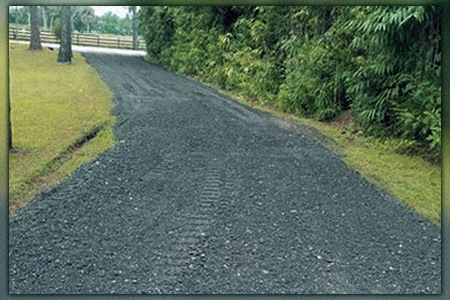
Recycled crushed asphalt driveways have several advantages for homeowners. It's a durable, weather-resistant surface and stands up to high traffic volumes. These driveways can last for decades with the right care and maintenance.
Let's examine the pros of installing a crushed asphalt driveway on your property.
Affordable
Crushed asphalt uses old asphalt broken up from old roads and repurposed through a milling process into gravel. It's essentially a waste product, and recycling prevents it from reaching the landfill, conserving precious waste management resources.
So, crushed asphalt driveways are usually very affordable and one of the cheapest building materials for this purpose. You'll pay a fraction of what you would for a paved or concrete driveway while retaining all the properties and benefits of the other materials.
Low Maintenance
Crushed asphalt driveways offer homeowners easy maintenance. The surface is long-lasting and highly durable, requiring little maintenance over its service life. A milled asphalt driveway is just as durable as a fresh hot-mix asphalt driveway but costs less and helps out the environment.
The only maintenance involved with a crushed asphalt driveway is the requirement for power washing and resealing every three to five years, lest you start ending up with weeds in your driveway to get rid of. Depending on the environmental conditions, you might only have to run this maintenance project every five to ten years.
Durability
Surprisingly, the milling process for crushed asphalt makes the material more durable than hot-mix. You get less chipping and wear on the surface, requiring little maintenance compared to a hot-mix asphalt surface.
Eco-Friendly
Hot-mix original asphalt is a labor and resource-intensive manufacturing process. However, only a fraction of the time, energy, and resources go into making crushed asphalt products. As a result, it's a sustainable product that can be recycled and repurposed repeatedly. It's the sustainable choice for a driveway and less harsh on the environment than cement, paved, or original asphalt driveways.
Cons of Crushed Asphalt Driveways
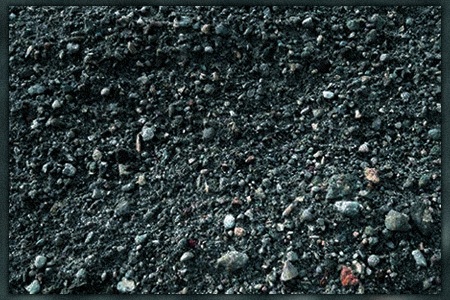
Crushed asphalt driveways aren't without disadvantages. While durable, reliable, affordable, and sustainable, they present homeowners with the following cons.
Unfinished Edges
The surface of crushed asphalt driveways looks smooth and clean, but the edges don't have any finishing. The installation process involves pouring the gravel and compressing it before sealing it. As a result, most homeowners have to fit boundaries to the edges to prevent erosion of the sides.
Tarry Surface
High temperatures and direct sunlight make the driveway sticky if you live in an area of the United States with a warm climate, such as California, Nevada, or Arizona. Sometimes, the heat might be so intense the asphalt sticks to the bottom of your shoes, and you'll unknowingly drag it through the house.
Cracking & Potholes
While a milled asphalt driveway is highly durable, it's still susceptible to sustaining cracks and potholes. However, proper installation usually prevents the chances of these occurrences. If your driveway experience cracks and potholes, a quick patch job usually fixes the issue.
Lifespan
A crushed asphalt driveway has a service life of 10 to 15 years. A concrete or paved driveway might last up to 20 years. However, resurfacing the driveway every five years or so usually increases service life beyond 20 years.
What Does It Cost to Install a Crushed Asphalt Driveway?
You can expect to pay approximately $5 to $7 per square foot for a crushed asphalt driveway. So, if you have a 600-square-foot driveway, you can expect to pay an average installation cost of around $4,000. The installation costs can vary depending on factors like location, grading, driveway size, and labor.
If the area is flat and not on a slope, it usually lowers the installation costs. Compared to concrete, which can cost up to $15 per square foot, crushed asphalt is a much more affordable material for your driveway. A colored and polished concrete driveway can cost as much as $20 per square foot.
FAQs Regarding Installing a Crushed Asphalt Driveway
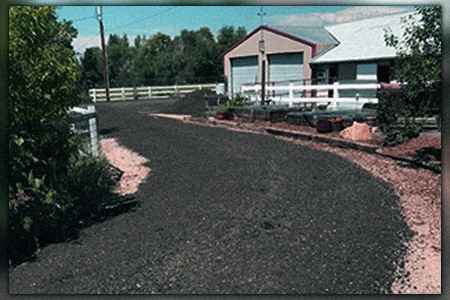
While talking about recycled asphalt pros and cons, the costs of installing this type of driveway, and more, other questions will inevitably arise. Let’s cover some of the more common ones now.
How Do You Maintain Crushed Asphalt Driveways?
The only maintenance required on a crushed asphalt driveway is a power wash and resealing every five years. In some locations, you might have to maintain the driveway every three years, and in others, every seven years.
Does a Crushed Asphalt Driveway Get Muddy?
Some manufacturers use "crusher run" for driveway materials. This material blends coarse and fine aggregate and helps the surface hold together. Unfortunately, it can get muddy in wet weather conditions and isn't suitable for use in driveway applications.
How Long Does it Take a Crushed Asphalt Driveway to Harden?
After compressing the surface, the asphalt melts together and hardens to form a rock-solid surface. Typically, the milled asphalt takes around 24 hours to cure completely.
Key Takeaways for Installing a Crushed Asphalt Driveway
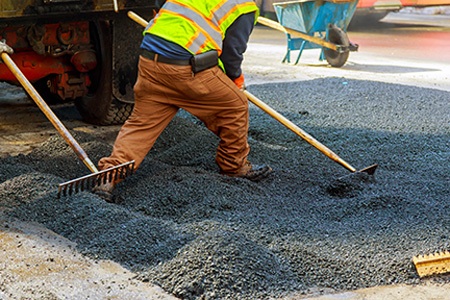
- A crushed asphalt driveway is a durable and affordable solution for homeowners.
- Crushed asphalt is a recycled version of hot-mix original asphalt, usually taken from old roads.
- Crushed or milled asphalt driveways are almost as durable as concrete or paved driveways, provided they're maintained properly.
- Crushed asphalt is an environmentally sustainable solution, reducing the impact on landfills and waste management services by recycling the material.
- A crushed asphalt driveway is poured, compressed, and sealed by the installation team. The costs for installation can increase if the surface requires grading.
A Crushed Asphalt Driveway May Be Right For You
I would say that the most important part of deciding to install a crushed asphalt driveway would be to really give a deep consideration to the asphalt milling driveway pros and cons. Decide which are more or less important to you, and then see which weigh the balance tilts. The answer will become obvious to you.



